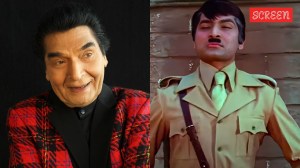Case History
The life of the nation through the life of an exemplary jurist. Excerpts from the autobiography of Fali S. Nariman....
On the Emergency:
As the saying goes,The best-laid plans of mice and men go oft awry.’ For me they went totally awry with the sudden Proclamation of Emergency on the morning of 26 June 1975 an Emergency that was contrived (hence phoney) a half-baked and ill-considered measure,hastily devised by the close advisors of Prime Minister Indira Gandhi only to offset the consequences arising out of a possible eventuality,viz refusal for an absolute stay of the Allahabad High Court judgment. It will be recalled that on 12 June 1975,Justice Jagmohan Lal Sinha of the Allahabad High Court had pronounced judgment in the election petition filed against Indira Gandhi (by Raj Narain). The judge had held her guilty of corrupt practices,disqualification). …In my view,the judgment was singularly weak in its reasoning…
Operation Emergency promptly swung into action with the acquiescence of Indias president,Fakhruddin Ali Ahmed. He was prevailed upon three prominent lawyers H. R. Gokhlale,S. S. Ray and Rajini Patel (all members of the Congress Party) to sign the proclamation that they brought to him. Fakhruddin Sahib was,of course (before his election as president of India),an old Congress stalwart,but he was a distinguished lawyer as well,a former advocate general of Assam,one of the best lawyers in the state.
Even before the council of ministers (the cabinet) met and approved the Proclamation of Emergency on the morning of 26 June,it had already been signed the previous night by a pliant president. I recall the remark of one of the most competent members of the cabinet at the time,Babu Jagjivan Ram (Babuji). He was asked by Indira Gandhi at the early- morning cabinet meeting of what he thought of the decision. Babuji deftly evaded the question saying,Madam,what can I say about a decision that you have already taken!
It was reported that when,during the midnight of 25 and 26 June 1975,the lawyers went to the president to get the proclamation signed,the president,after appending his signature to the document,took a sleeping pill. I have always said that it would have been better for the country if he had taken the sleeping pill before signing the proclamation. In that event,when he awoke he might have had second thoughts before he signed the warrant for dictatorial rule (which happily happily only in retrospect was a brief one).
A constitutional head of state has a very useful,though benevolent,role in our constitutional scheme of things. There are many areas of silence in our Constitution,and that is where the president can quietly influence,without fanfare,decision-making. The president could have delayed signing the proclamation till after the cabinet meeting (to be held next morning),and who knows what would have happened? It was this precipitate act of the head of state at the entreaties of prominent lawyers that enabled the government to pick up and detain in the dark hours of the night all political heavyweights in the opposition both at the centre and in the states. They (and hundreds of others) were detained before they knew what had hit them.
On Ramnath Goenka
Ramnath Goenka was founder and managing editor of the The Indian Express,and he had,what Napoleon called,courage of the-two oclock-in-the-morning-kind unprepared courage that is necessary to meet an unexpected occasion! Goenka faced the Emergency of June 1975 with grit and determination. For the entire period that it lasted (upto March 1977),he stood erect and defiant,a towering figure the symbol of the free press in India. During the Internal Emergency,The Indian Express Group of Newspapers faced criminal prosecutions all around the country prosecutions under the Companies Act,1956,for not filing certain documents with the registrar and/or filing them beyond the stipulated time. Invariably,the magistrates (who looked upward for guidance) would not dispense with the personal appearance of the managing director,and Ramnathji spent most of his waking hours shuttling from one place in India to another,dutifully putting in his personal appearance before the courts across the country. But he was not deterred.
On judicial overreach
Students and votaries of law (all lawyers and judges are students are votaries of law) should not pay lip service to statistical democracy,which is the making of laws by elected legislatures elected in the basis of universal adult franchise,but to welcome with confidence judicial governance. Consider for a moment the Constitution of India,1950. It is a detailed document,defining the three great organs of state: Parliament and state legislatures; the executive,central and state; and the higher judiciary (the high courts and the Supreme Court).
There is hardly any provision where the courts scrutiny or jurisdiction is excluded. Yes,there are articles in our Constitution (there are few) where courts are not permitted to question what goes on in Parliament,and in turn Parliament is not permitted to discuss or debate the conduct of sitting judges. But thats about all.
..Just consider our basic document of governance and the reach of the overarching provisions: Article 32 (Right to Constitutional Remedies in the Supreme Court directly for enforcement of all fundamental rights),Article 226 (power of high courts to issue certain writs) and Article 227 (power of superintendence over all courts and tribunals by the high court). Whether politicians like it or nor,these Articles do give primacy to the judges. The Constitution,as drafted and as it exists today,has placed the judges of the superior judiciary in the driving seat of Governance Governance with a capital G…
It has been said that where there are no judicially manageable standards,our courts should not interfere,They should leave it to the elected representatives of the people. Theoretically speaking,this is correctbut what if the elected representatives fail to perform? What then?…
And the reason for what prime minister Dr Manmohan Singh recently characterised (in my humble opinion quite erroneously) as judicial over-reach is thisall power grows by what it feeds on. All judicial power also accretes by the mere circumstance that other constitutional bodies and authorities set up to legislate and to pass administrative orders have failed to act when called upon to act. I suggest that the judicial over-reach the prime minister spoke about is the direct result of legislative and executive under-reach…
On CVC
The Central Vigilance Commission Act,2003,came up for consideration as a bill before the Rajya Sabha in august 2003 after being passed by the Lok Sabha. It was meant to stem the rot of corruption in public life by high government officials. The act set up a three-member Central Vigilance Commission (CVC) with guaranteed tenure,appointed on the recommendation of a high-level committee so that it could fucntion independently of the central government. Hidden in the verbiage of that act,however,is a provision tucked away in a third sub-clause of the twenty-sixth section dealing with what is commonly known as the single directive.
Under the provisions of this act,any whisper or suspicion of corruption in employees of the central government at the level below that of joint secretary can be inquired into and investigated by the Central Bureau of Investigation over whom the statutorily appointed CVC is to exercise a hawk-like superintendence. But all employees of the central government at the level of joint secretary and above are immune from any inquiry or investigation into any offence alleged to have been committed by them except with the previous approval of the Central Government. The only rationale offered by the government for this differentiation was that it was essential to protect officers at decision-making levels and to relieve them of the anxiety and likelihood of harassment from making honest decisions. This was perhaps an understandable reason. But when I suggested in the House to the minister who moved the bill to substitute for the words except with the previous approval of the Central Government,the words except with the previous approval of the Central Vigilance Commission,his refusal to do so was totally inexplicable to me.
© Fali S. Nariman,Hay House



- 01
- 02
- 03
- 04
- 05



























